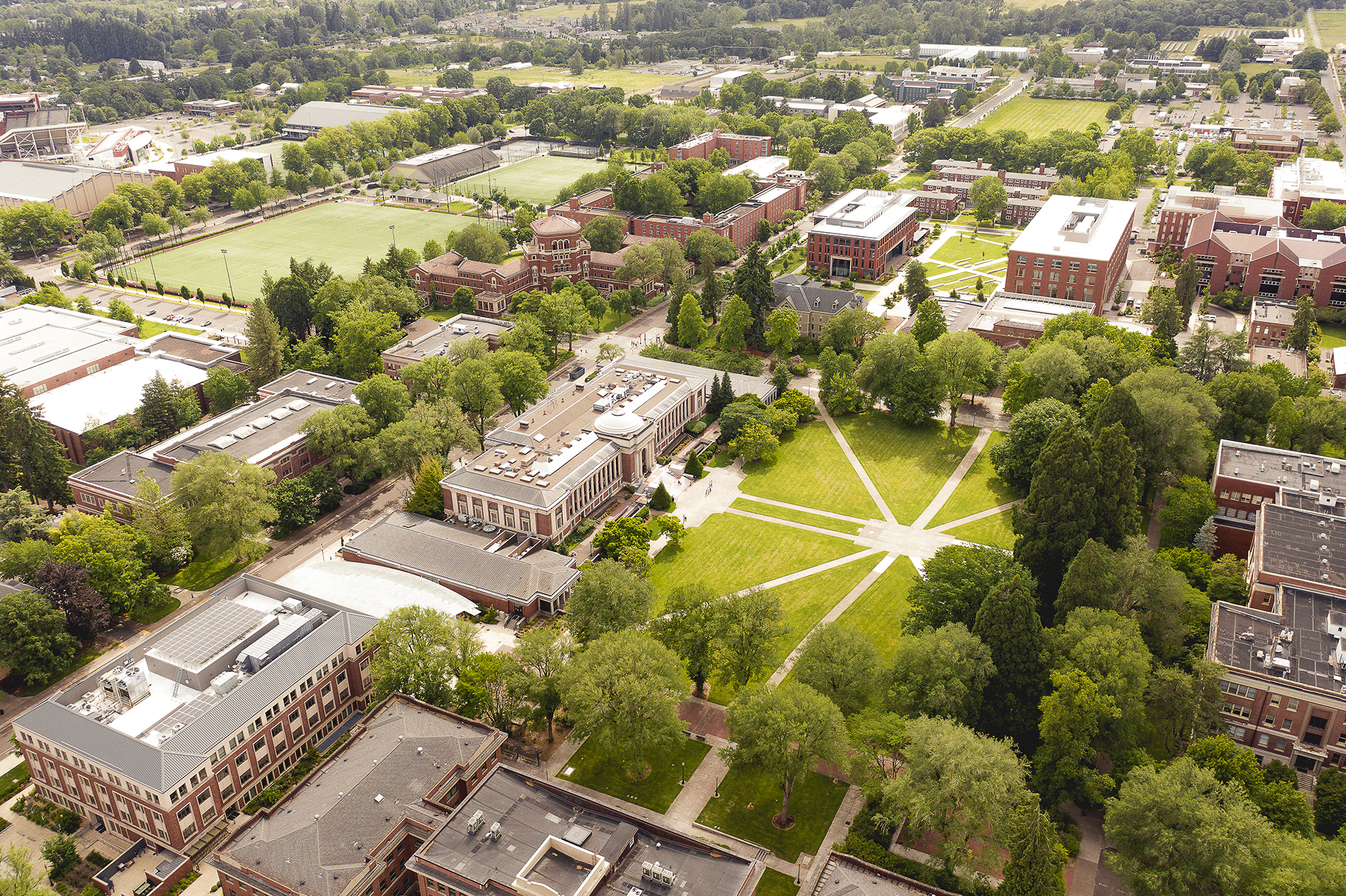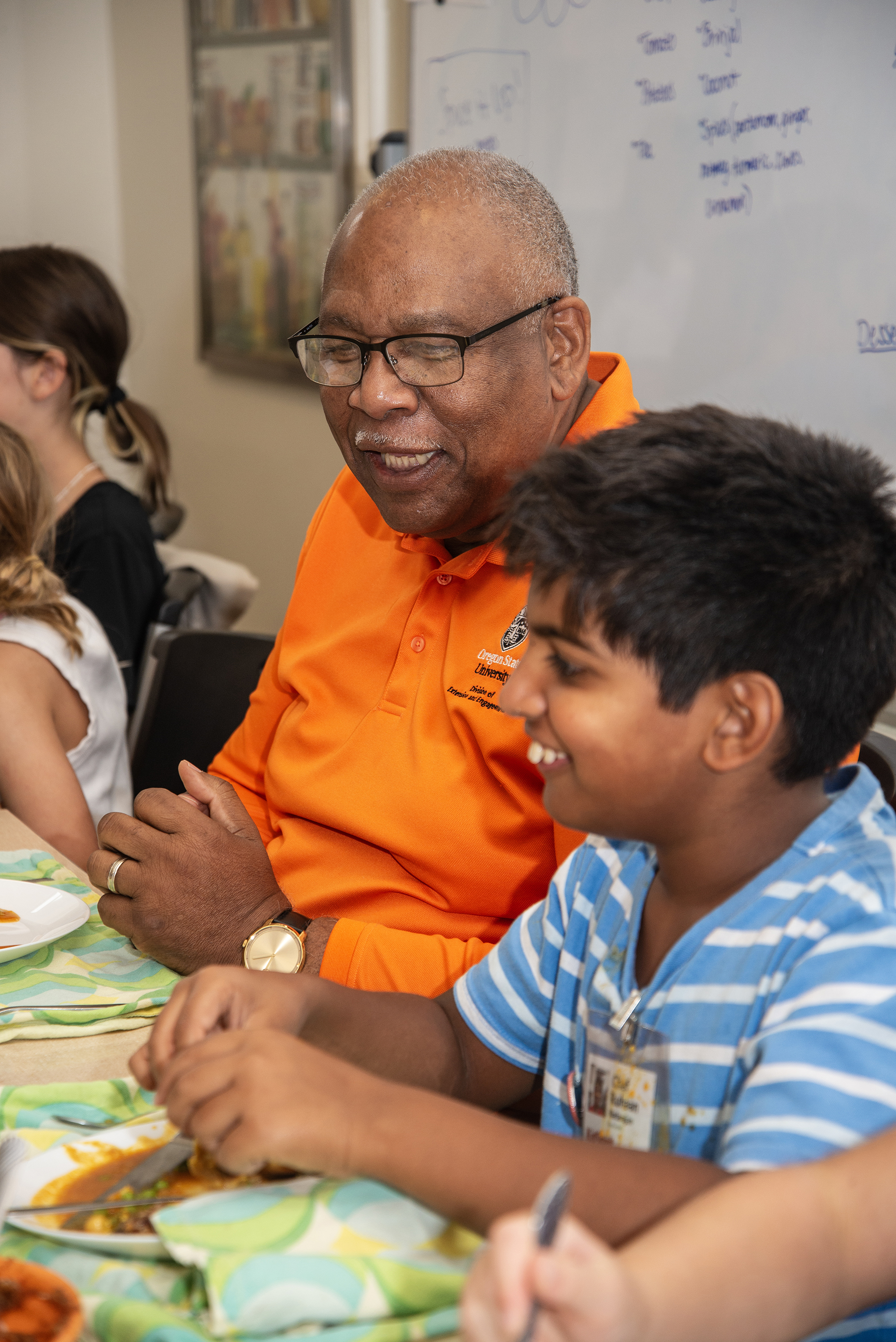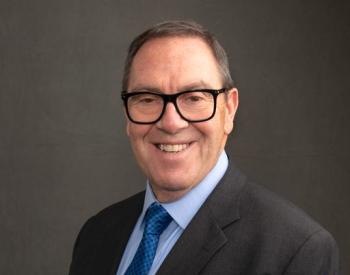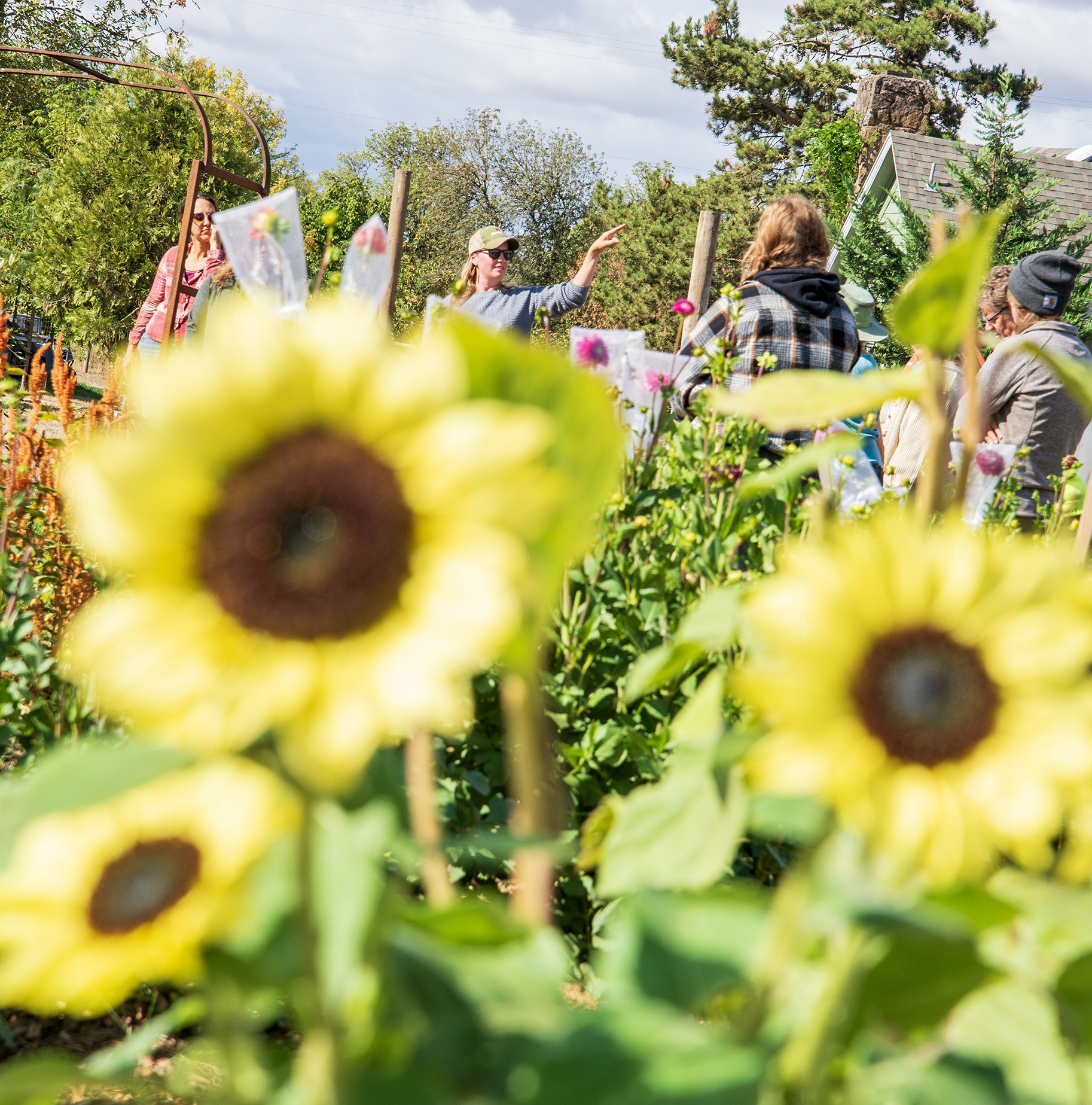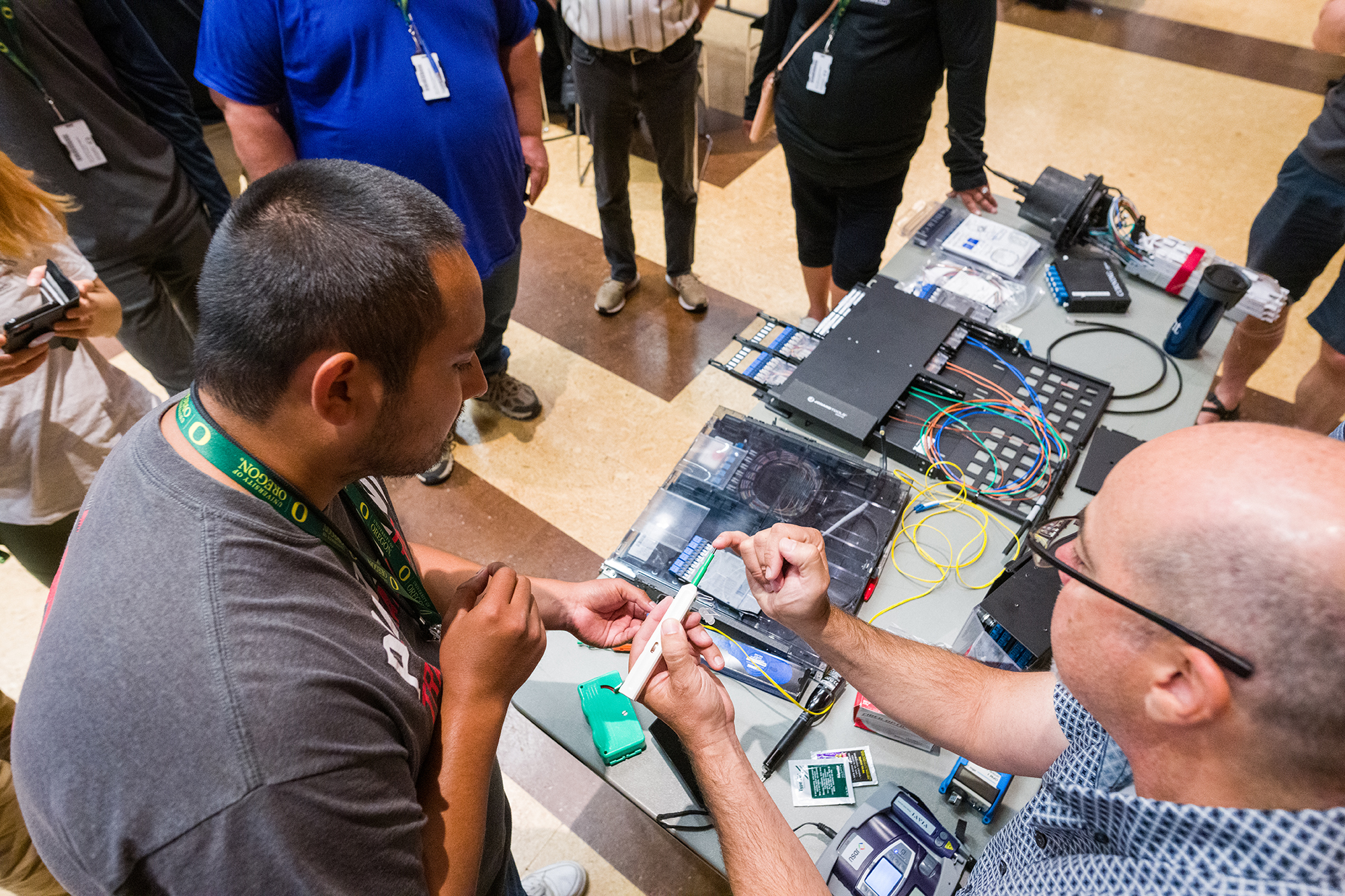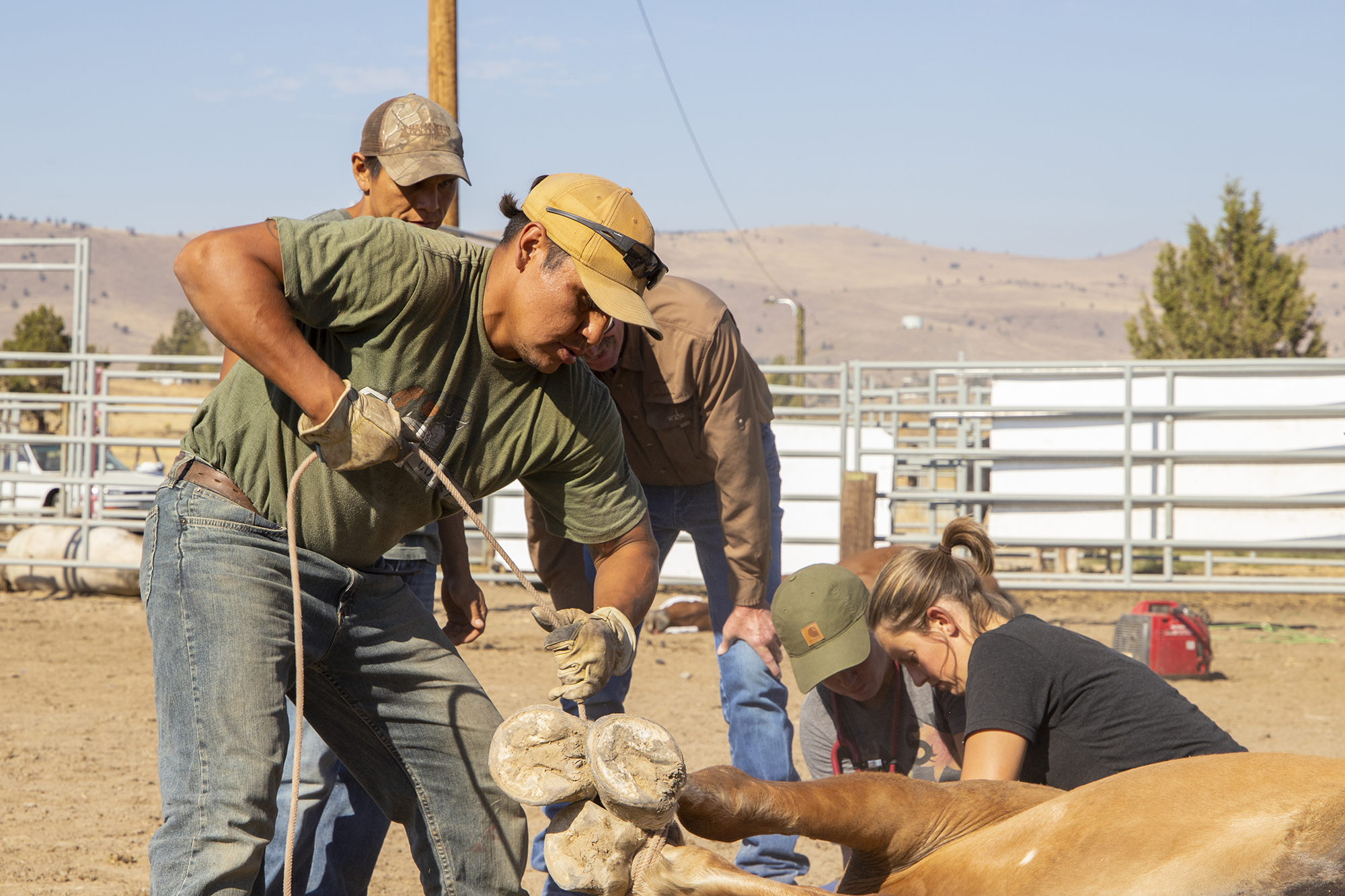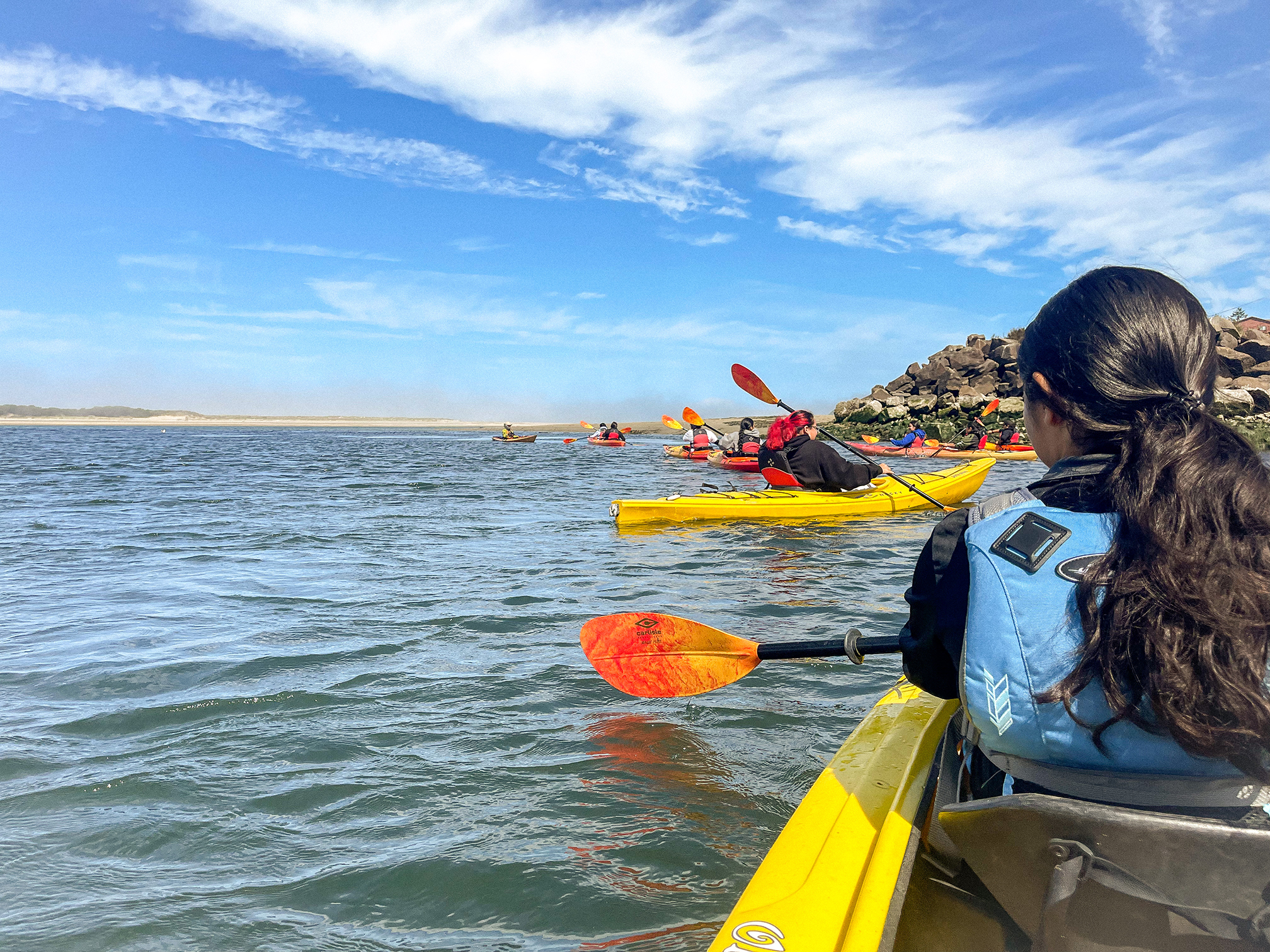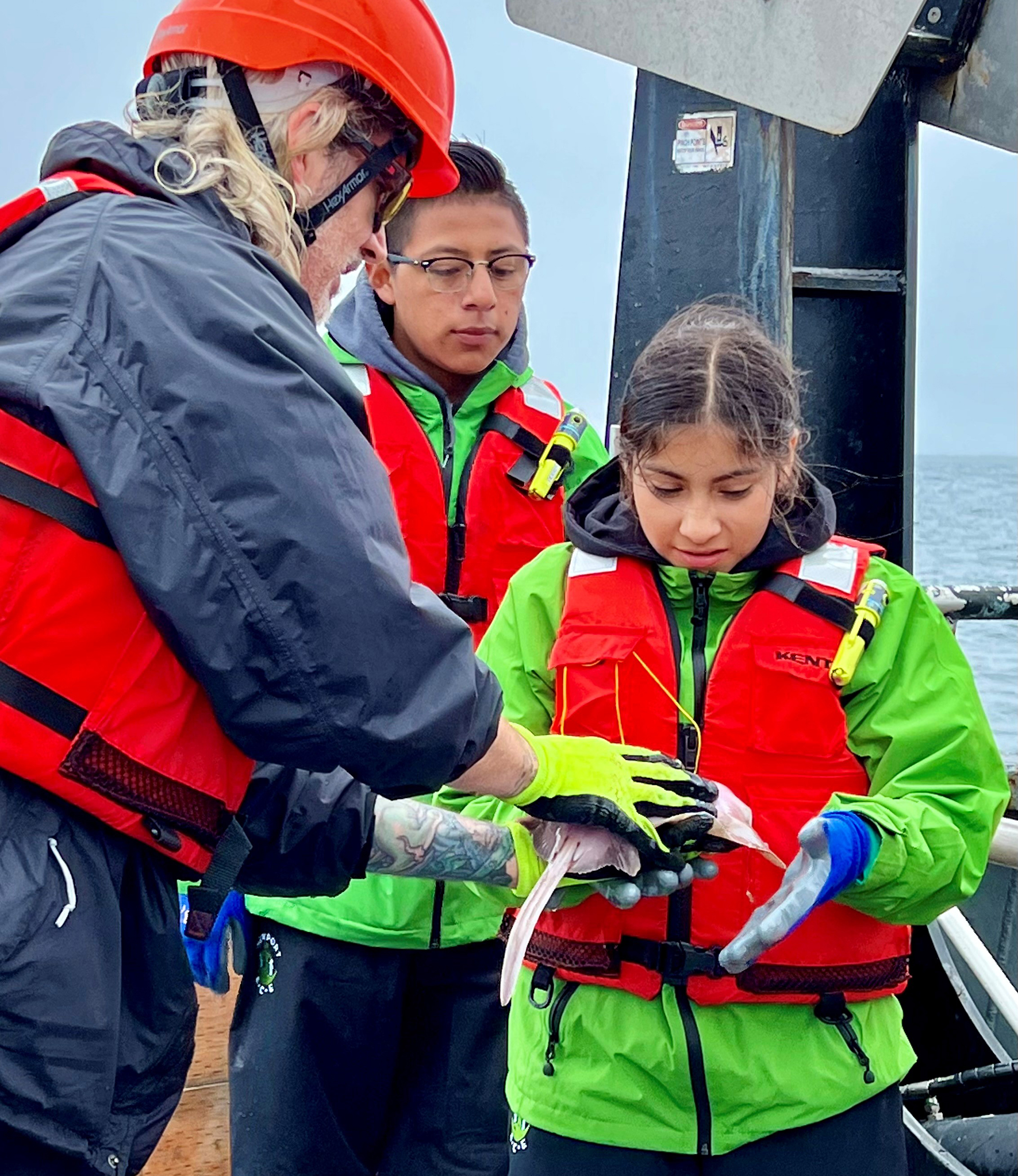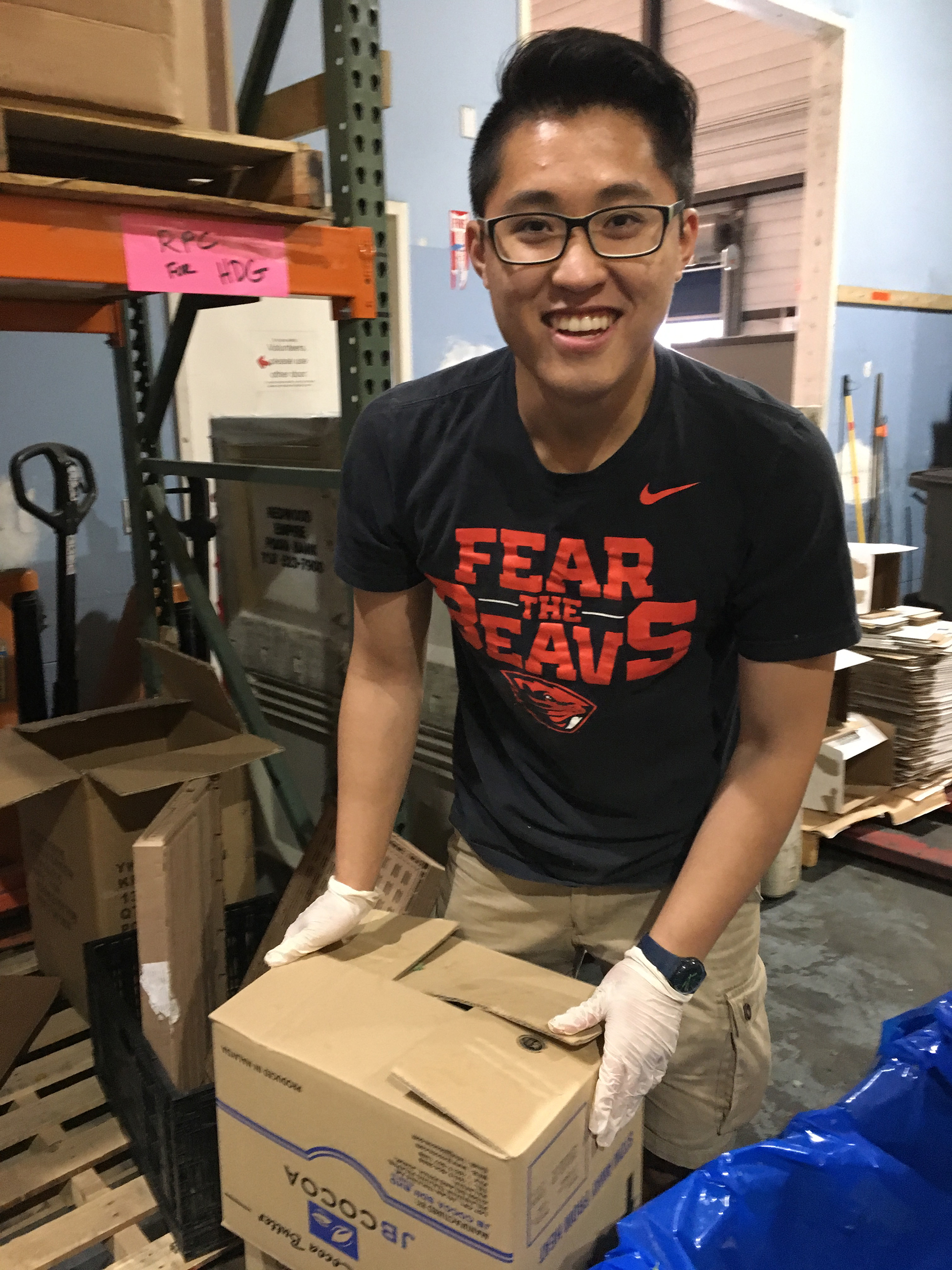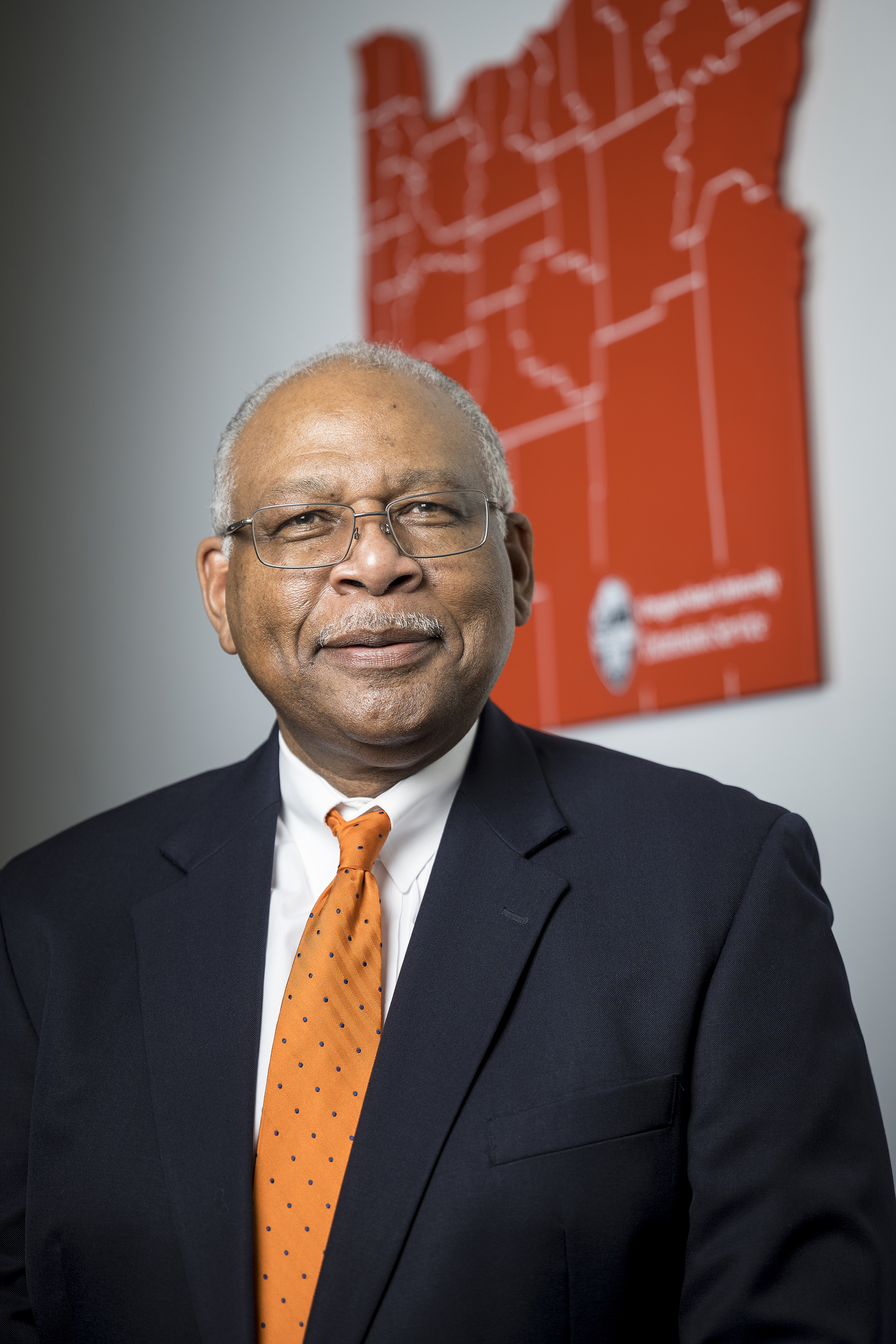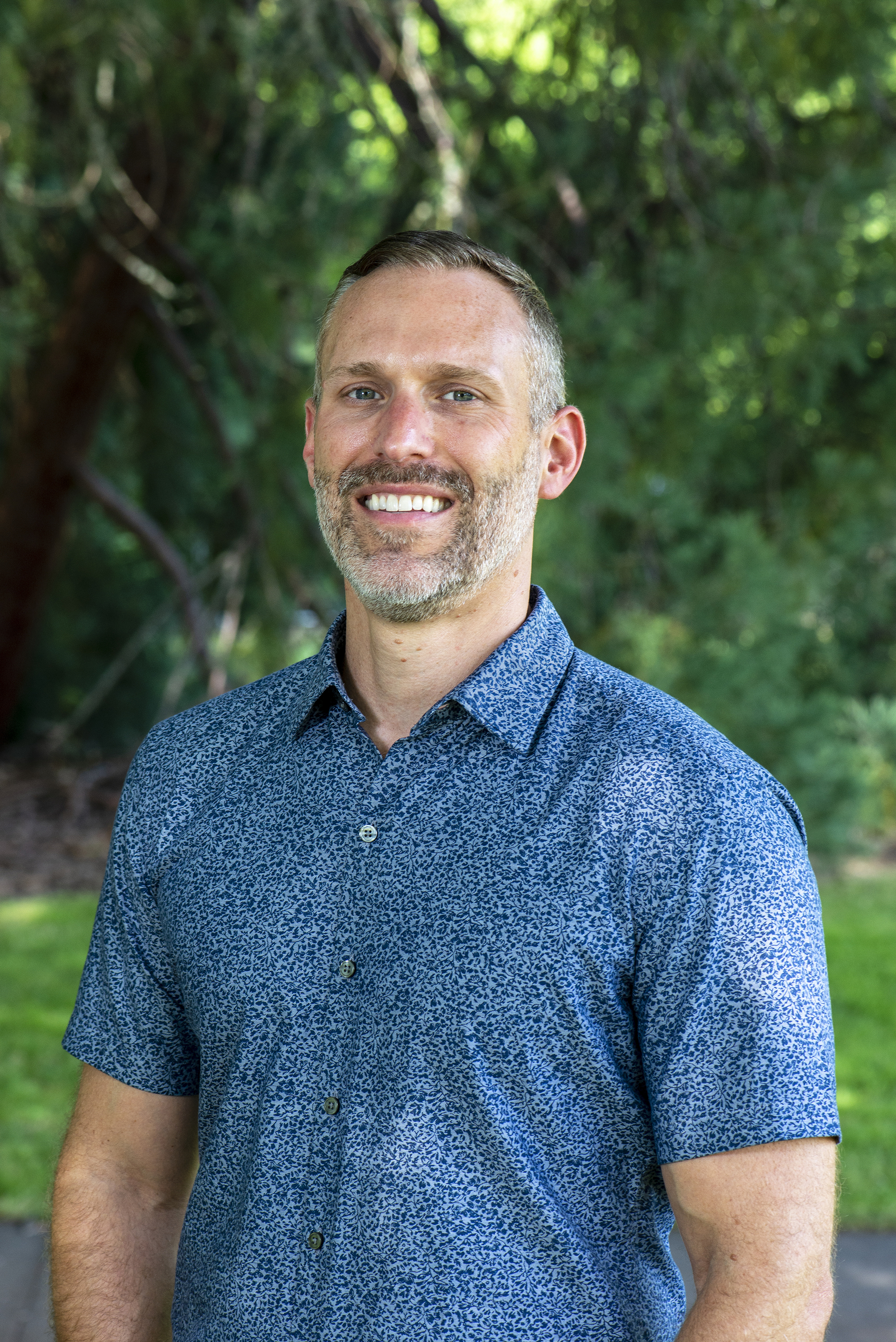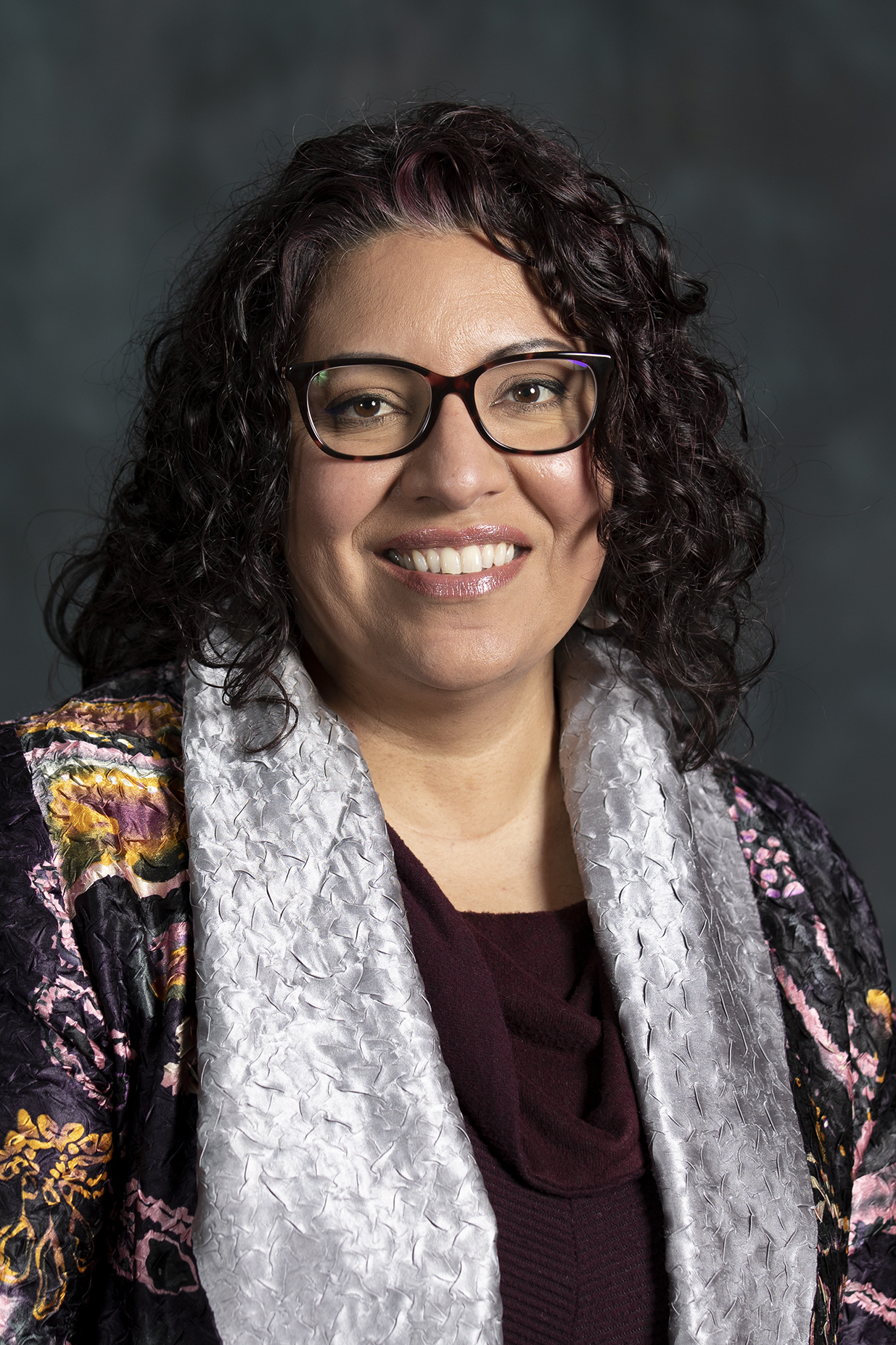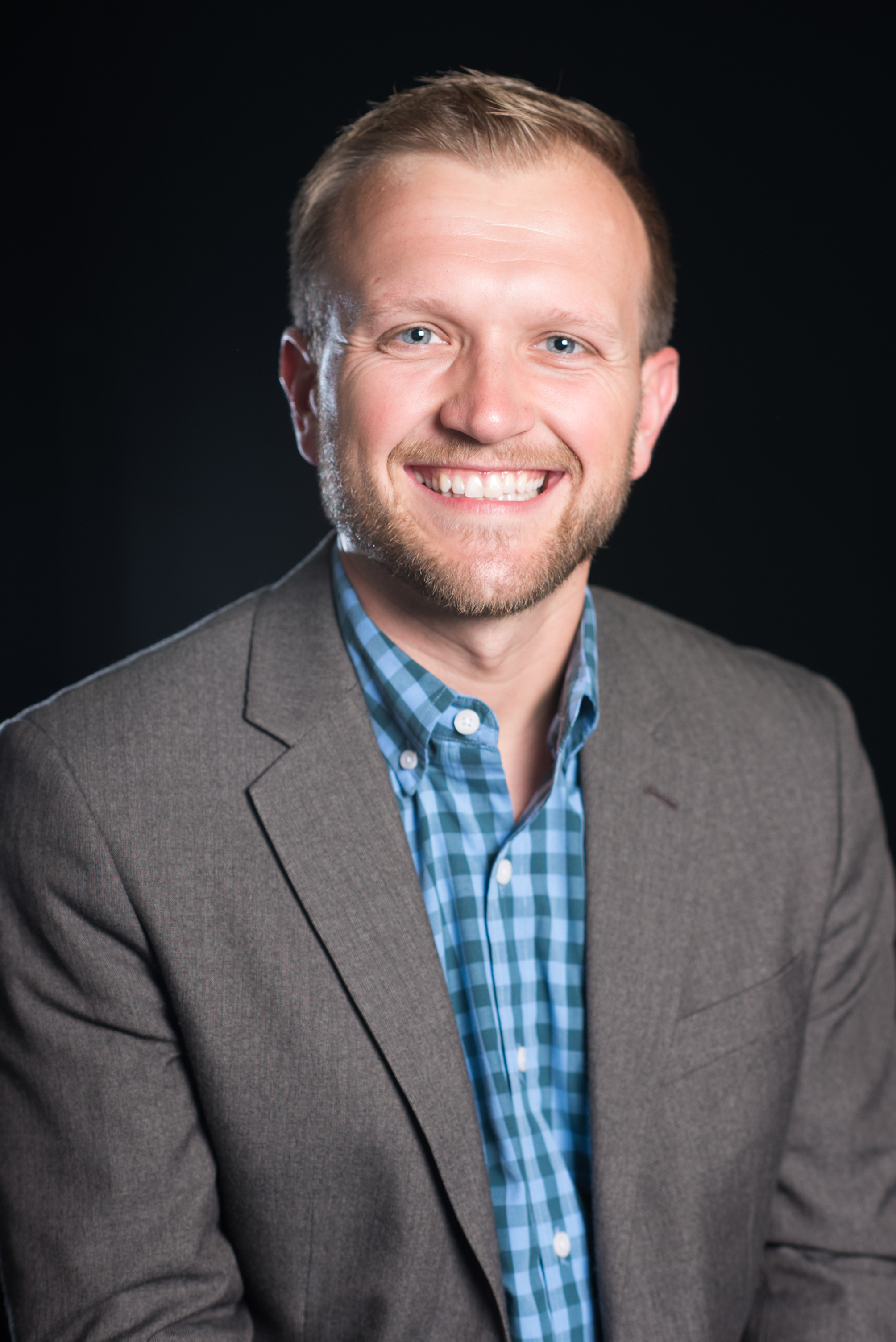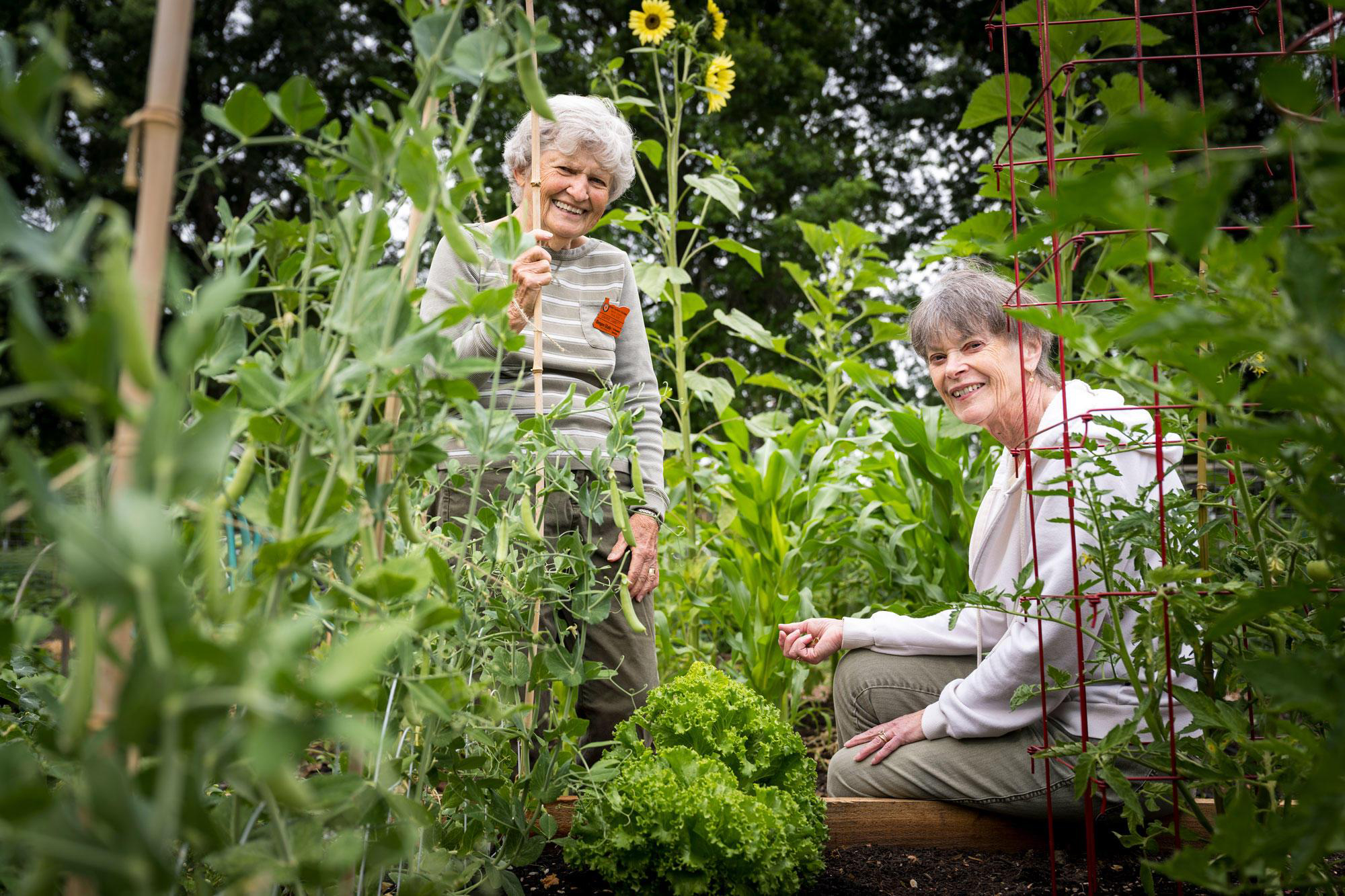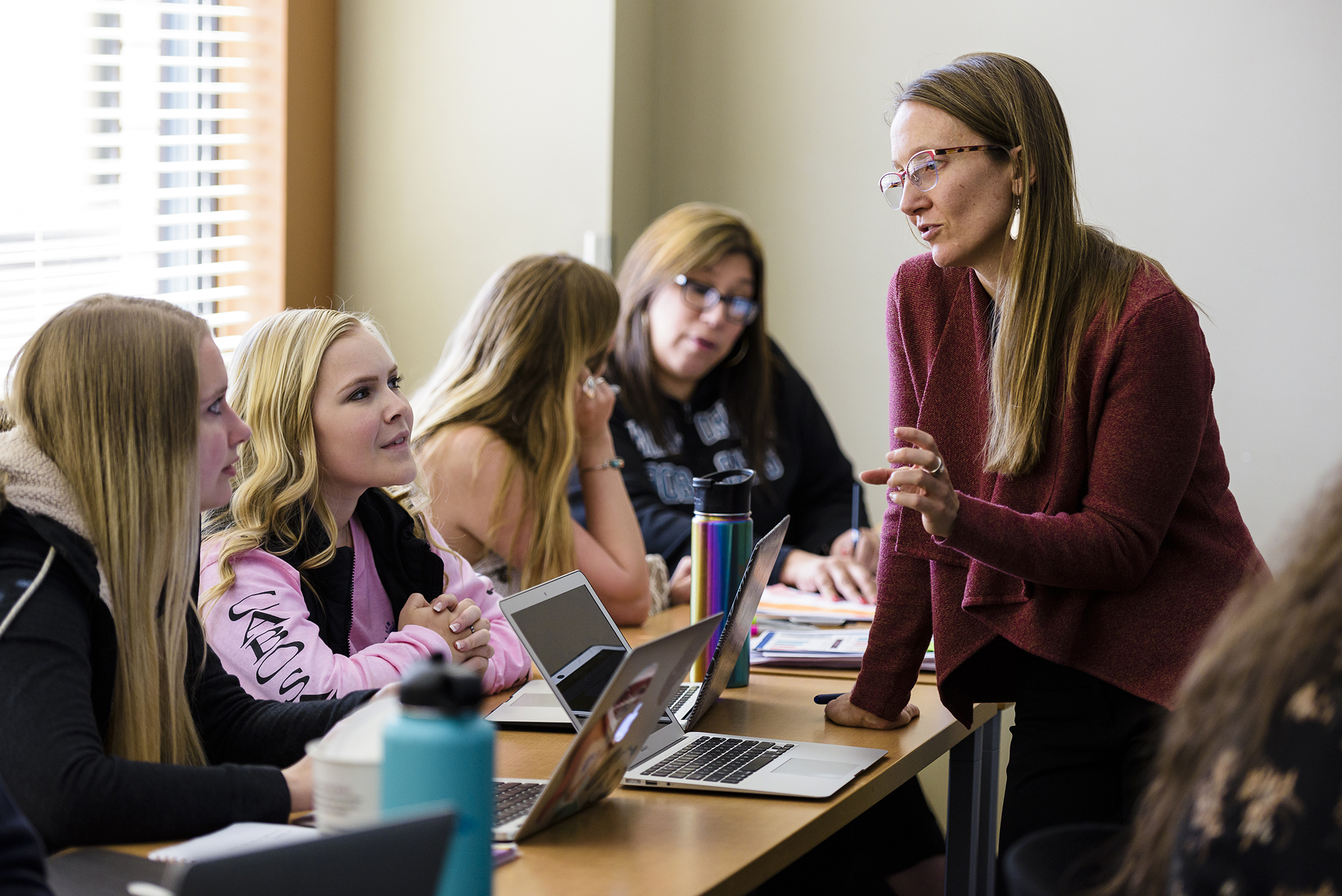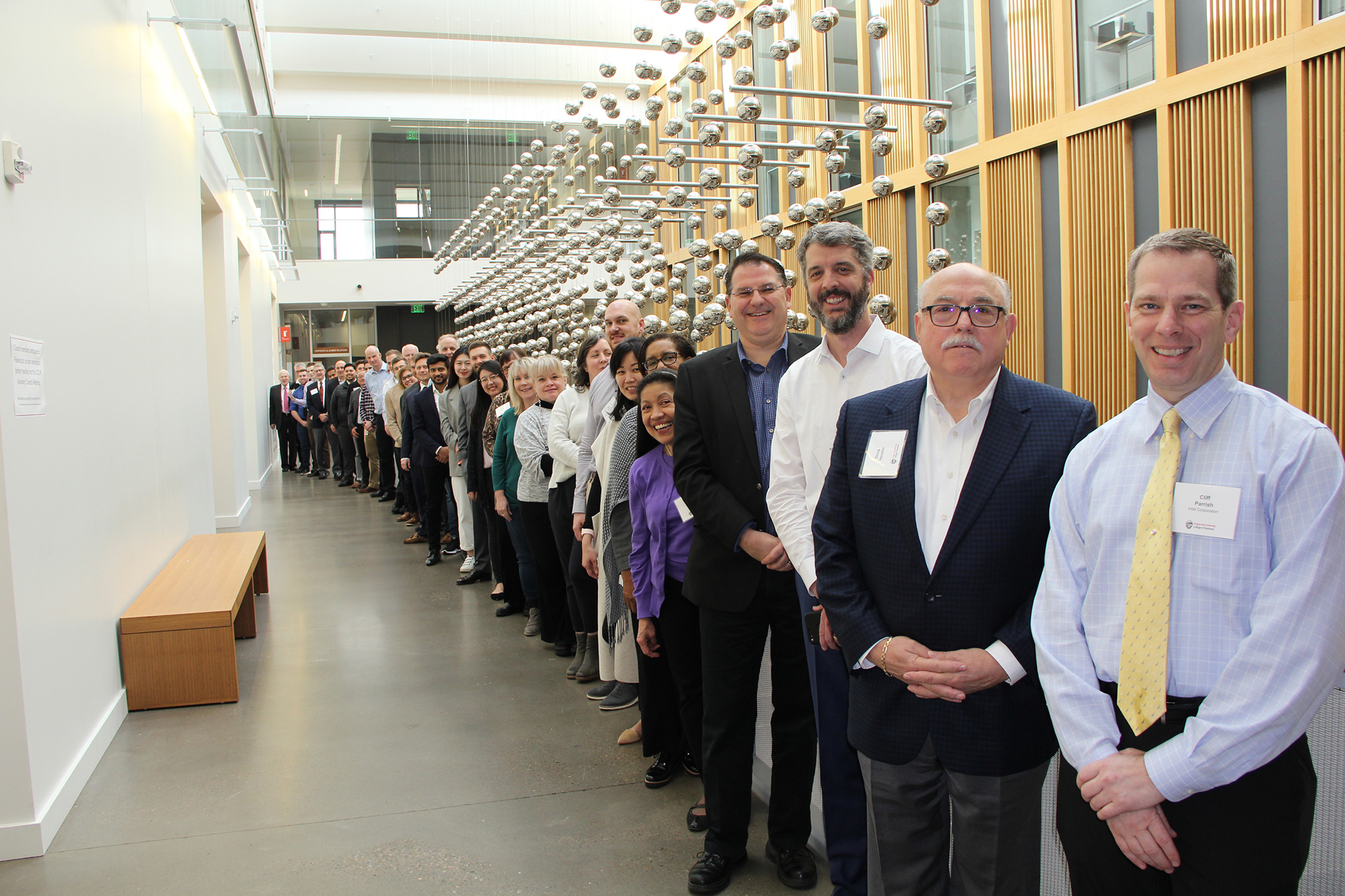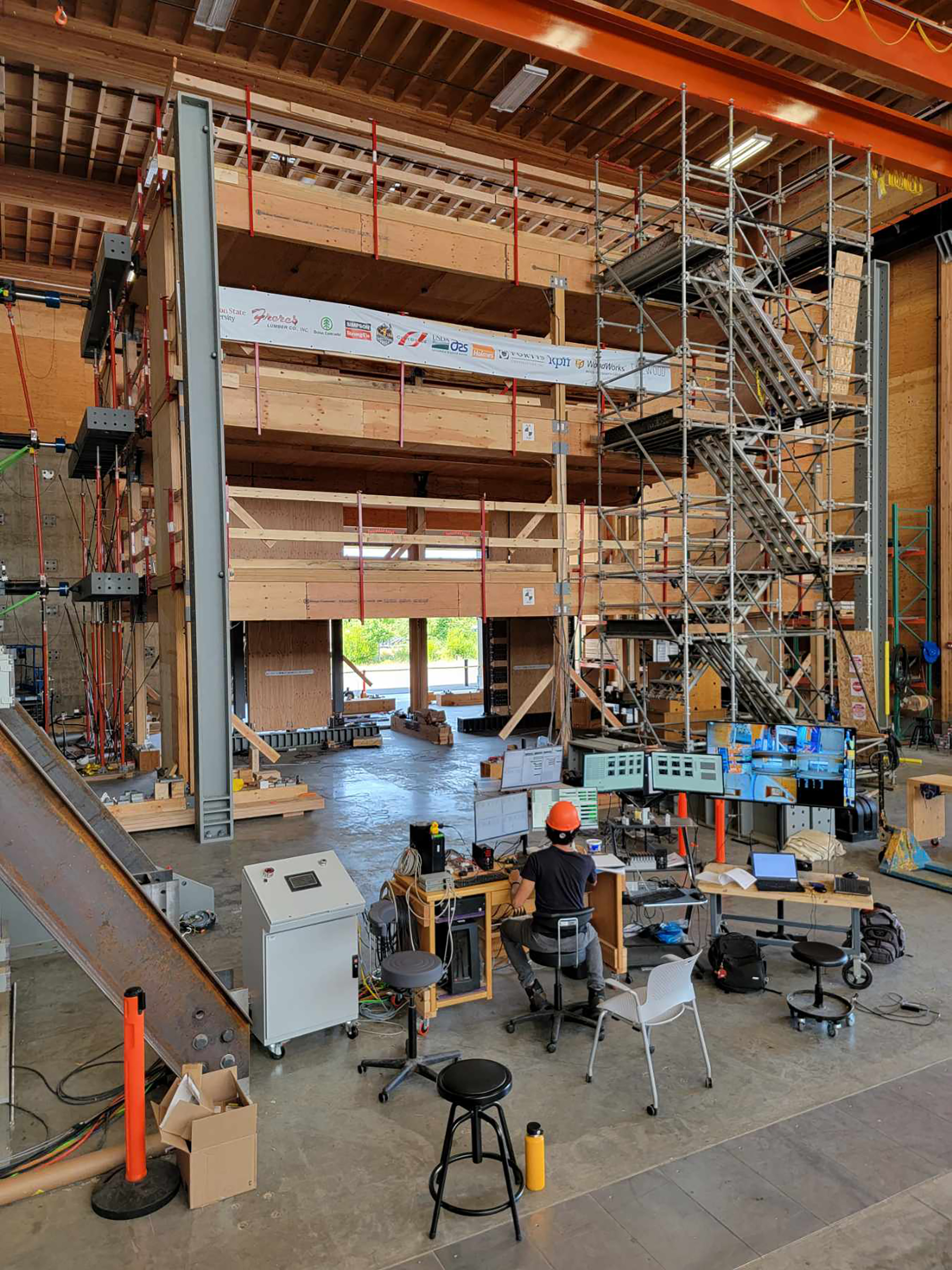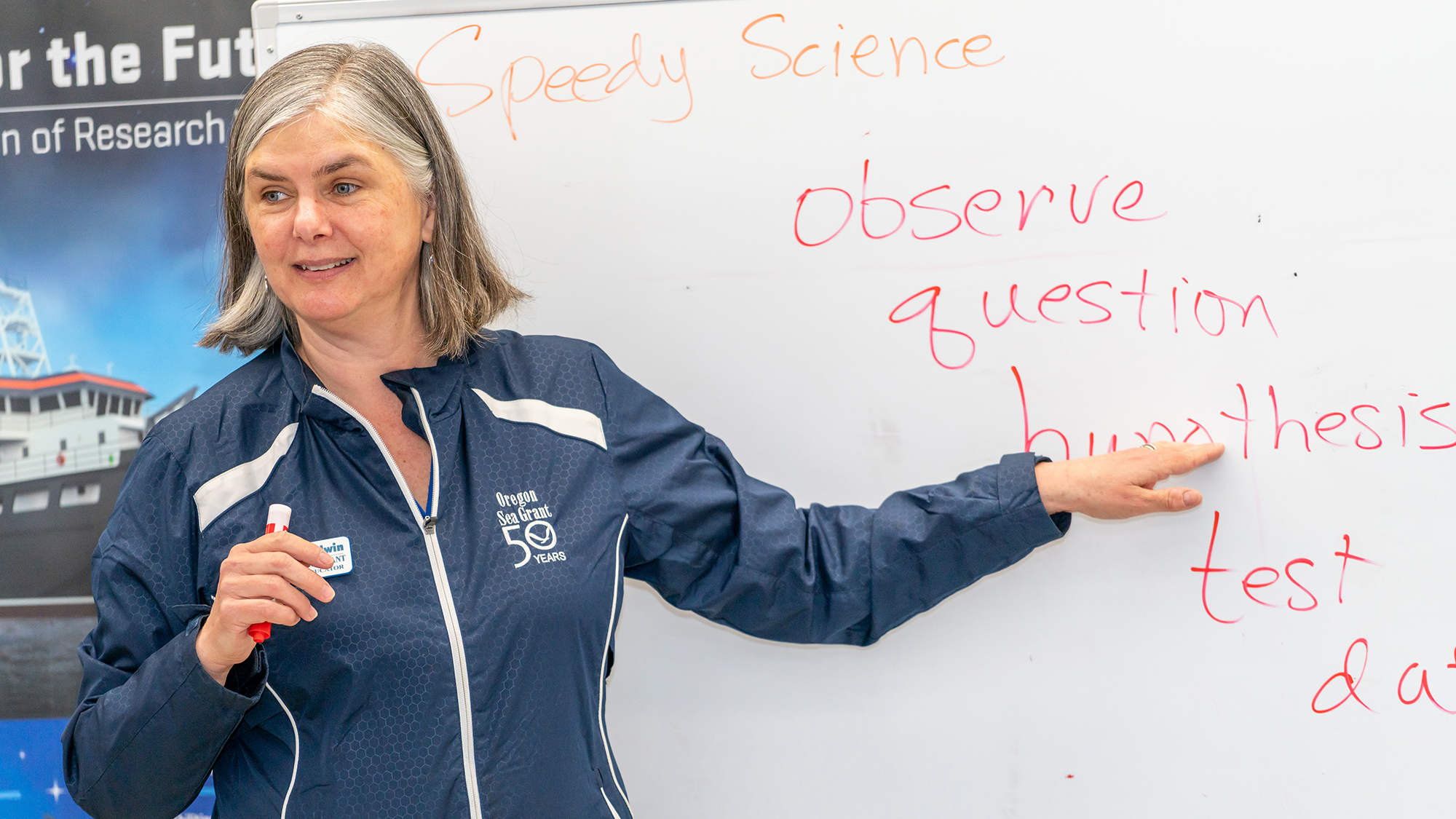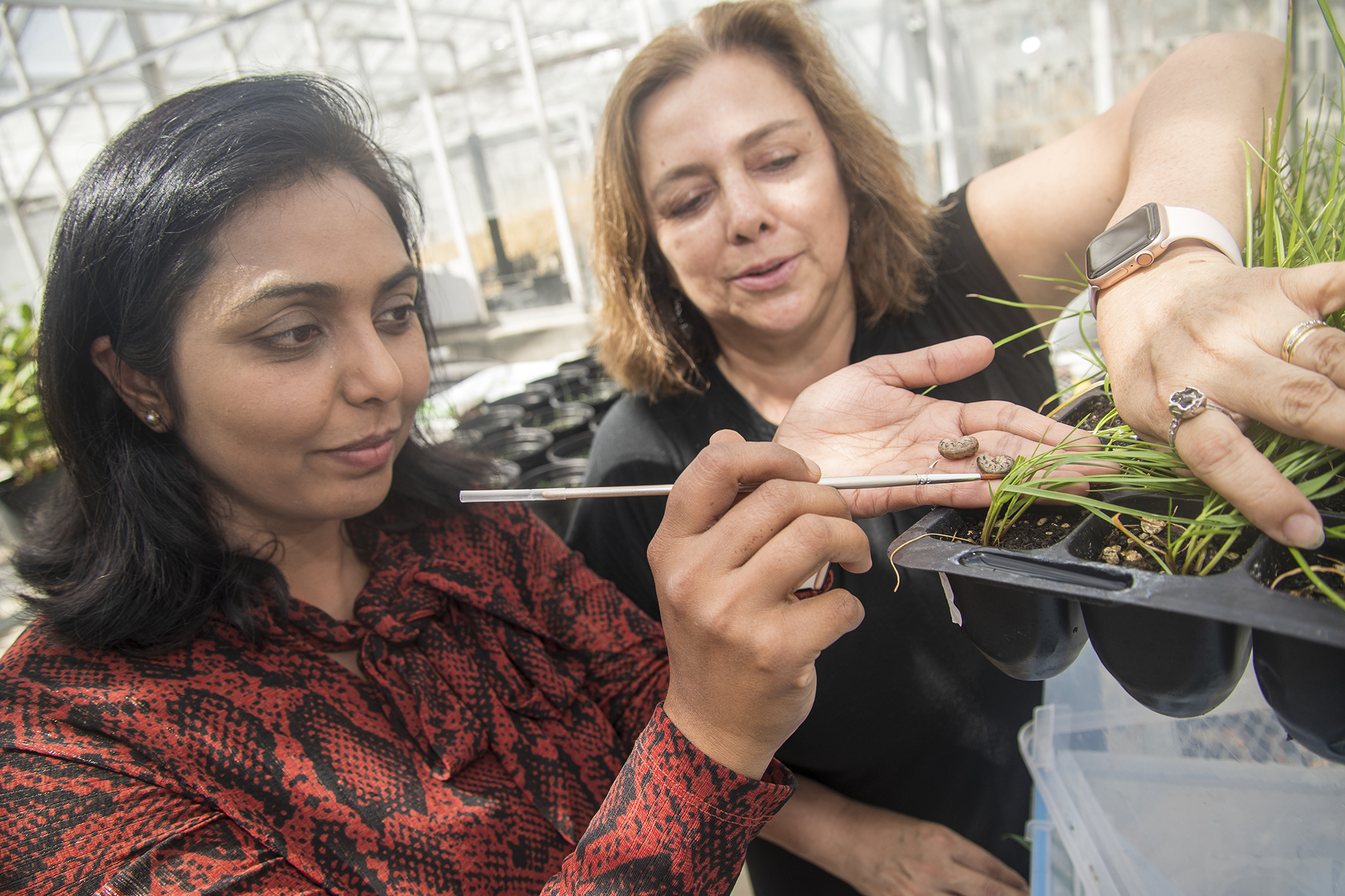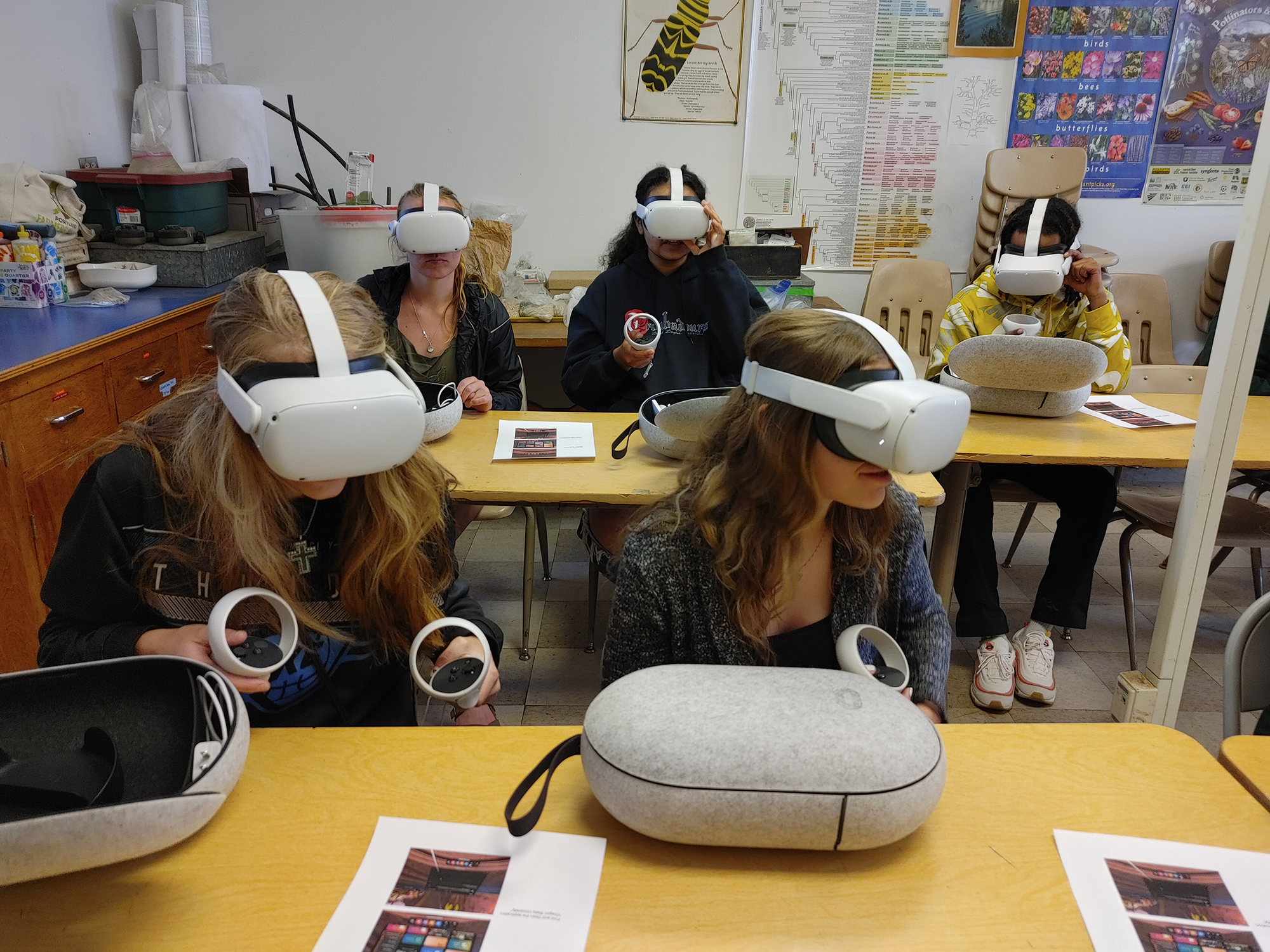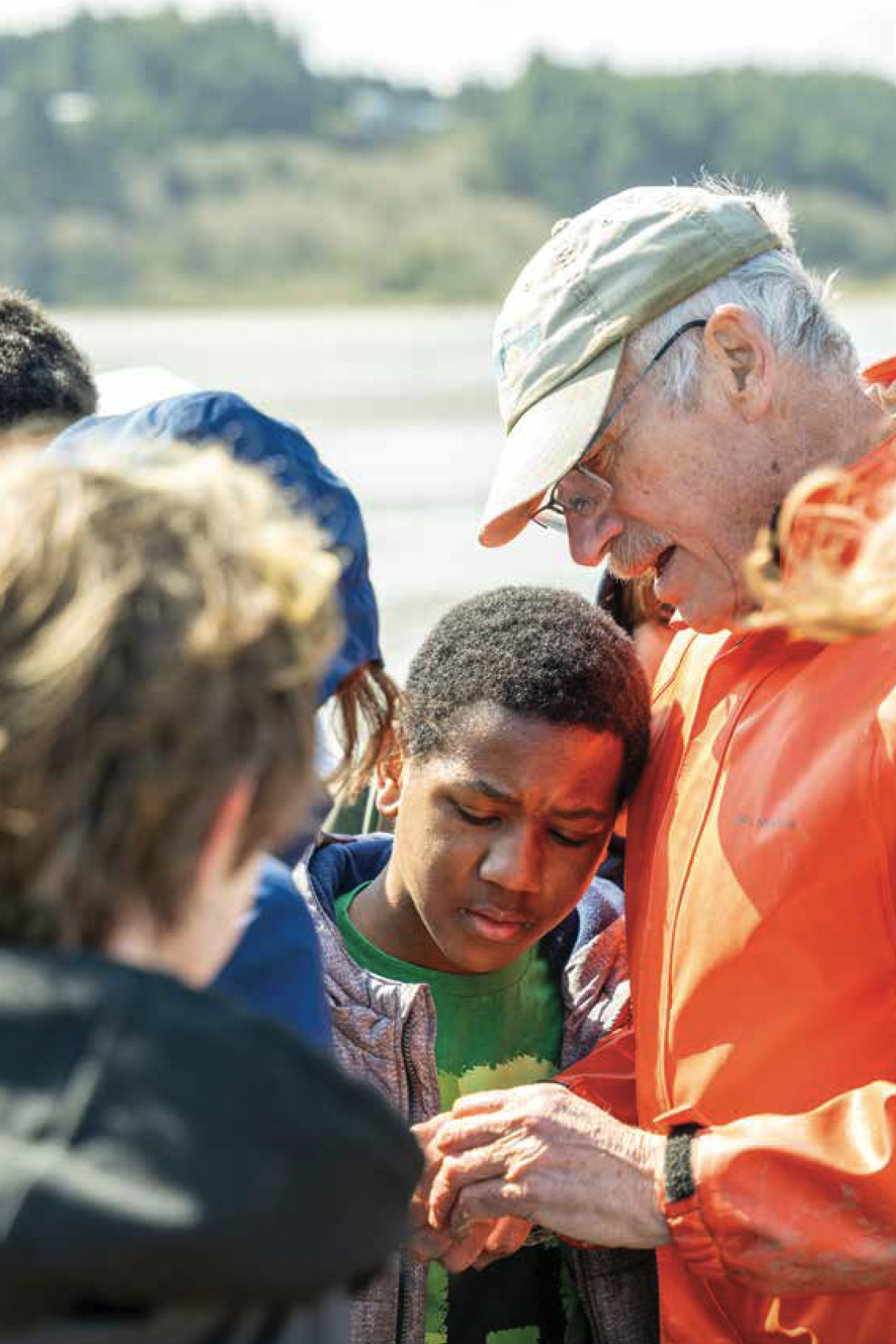Building and strengthening university–community relationships
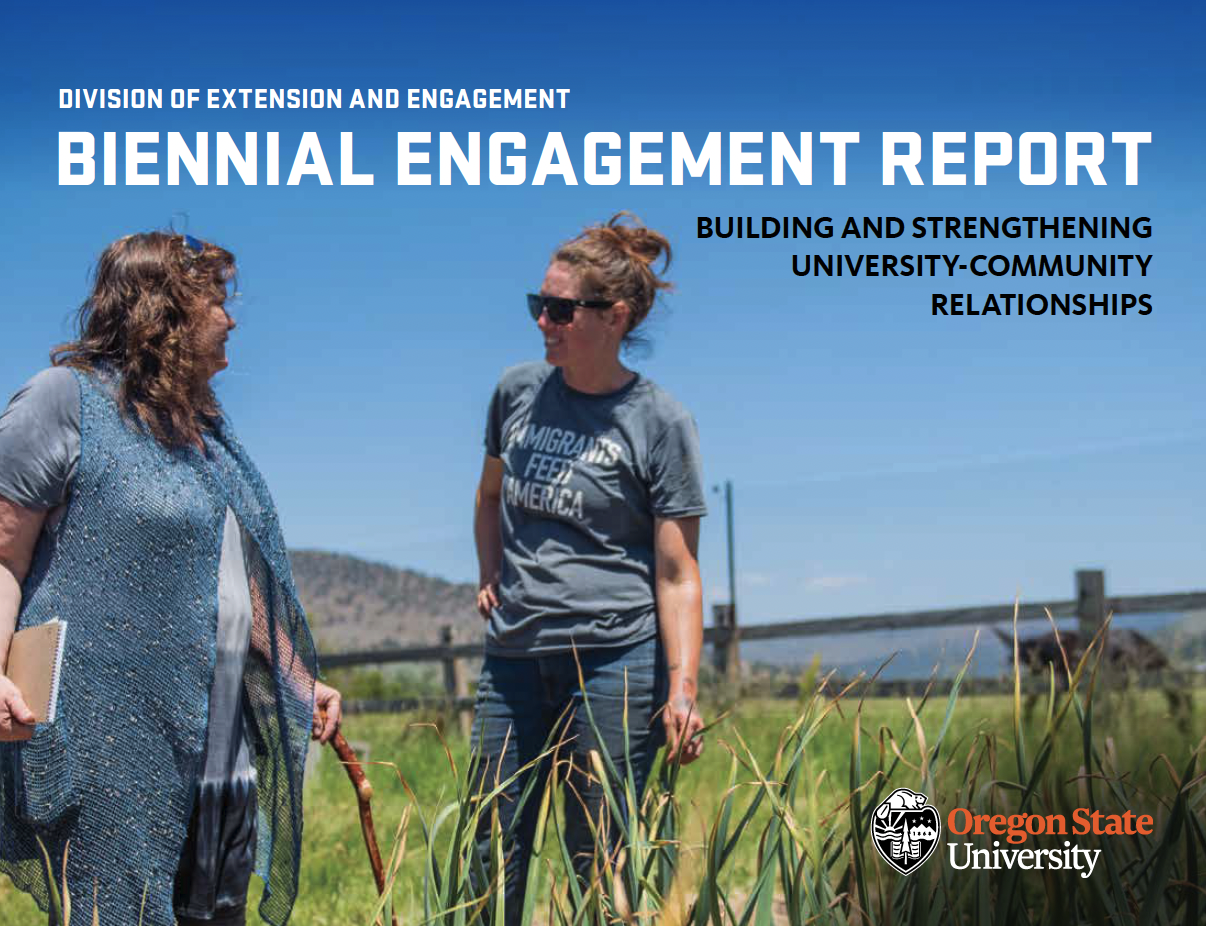
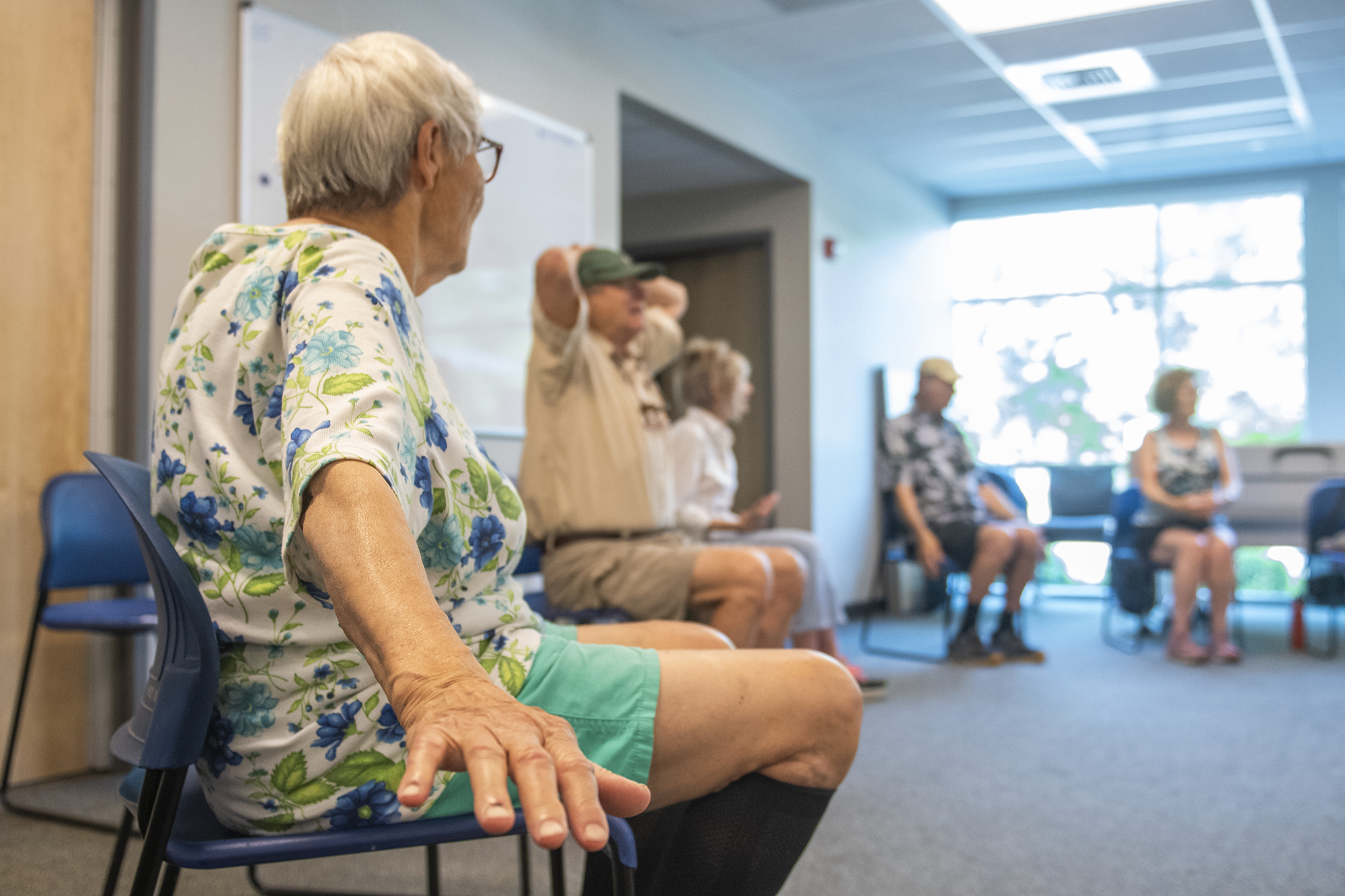
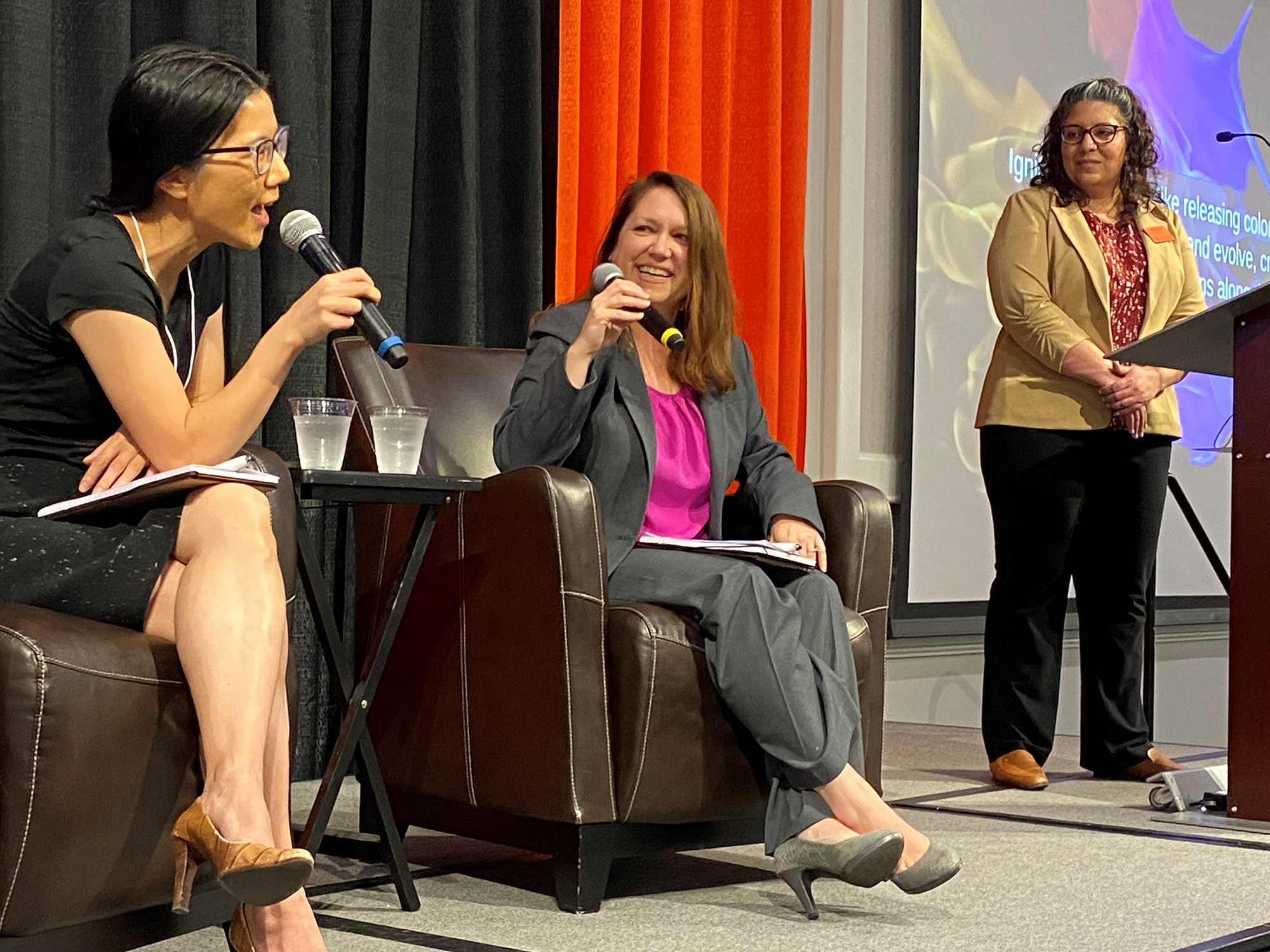
Restoring an endangered ecosystem
The College of Forestry is working with the Aanniiih and Nakoda Tribes in northern Montana’s Fort Belknap Indian Community, along with the U.S. Bureau of Land Management, to restore one of the last intact short-grass prairie ecosystems in the United States. Led by Cristina Eisenberg, associate dean for inclusive excellence and director of Tribal initiatives, the project incorporates Indigenous Knowledge while collecting native seeds and surveying for ethnobotany, soil health and pollinators. The project also includes STEM education for Tribal youth and jobs for FBIC members.
Preserving the Black experience
Oregon State University now owns most of the land in Benton County’s Soap Creek Valley that was claimed by Letitia and David Carson. Formerly enslaved, Letitia was one of Oregon’s first Black settlers when she arrived in 1845. The Letitia Carson Legacy Project, a partnership between Oregon State and the Black Oregon Land Trust, Oregon Black Pioneers, Linn Benton NAACP and Mudbone Grown, focuses on the Black experience in Oregon and preserving the plot of land the Carsons once called home.
Sharing Indigenous voices
OSU Press partnered with Confluence, a community nonprofit dedicated to bringing Indigenous voices to the history, culture and ecology of the Columbia River, to co-publish “My Name is LaMoosh” by Warm Springs Tribal elder Linda Meanus. Intended for young readers, it provides a firsthand account of growing up near Celilo Falls. The book is also a reminder that Indigenous people continue to maintain a cultural connection to the land and river that give them their identity.
Promoting mental health in Spanish
The OSU Center for Health Innovation in the College of Health is partnering with the OSU Extension Service Coast to Forest program to promote mental health and prevent substance use. OCHI and Coast to Forest have provided mental health first aid training for rural communities and are now expanding to offer it in Spanish in partnership with Juntos en Colaboración in Lincoln County.
Promoting DEI as good business
The Center for Advancing Diversity, Equity and Inclusion in Business in the College of Business promotes DEI as a successful business strategy. The center addresses the important and difficult work needed to remedy historical inequities and build a sense of belonging. Working directly with businesses, the center provides consultation, assessments and custom online DEI education programs that are both unique to an industry sector and applicable to any workplace culture.
Building pathways to higher education
Launched in spring 2023, Access OSU is building better pathways to higher education for Black, Indigenous, Pacific Islander and Latinx communities in the Portland metro area. Access OSU integrates community-based programs with multiple OSU resources that serve students and their families. Access OSU is a partnership between the Office of Institutional Diversity, Extension and Engagement, Student Affairs and Enrollment Management, along with the OSU Foundation and Alumni Association.
Expanding career opportunities
The Vanguarding an Inclusive Ecological Workforce Fellowship, established by the Department of Fisheries, Wildlife and Conservation Sciences in the College of Agricultural Sciences, is expanding career opportunities for undergraduates from historically excluded or underrepresented communities. VIEW Fellows complete a 10-week paid research experience over the summer, mentored by a faculty member or senior researcher. The fellowship also includes professional development through résumé and graduate school workshops, field days and conferences.
Serving communities over spring break
Every year, Oregon State students spend spring break immersed in service-learning. Offered by Community Engagement & Leadership in the Division of Student Affairs, Alternative Break sends groups of 10 to 12 students to West Coast cities where they work with local leaders and learn about the communities’ historical, cultural and political backgrounds through service projects, educational conversations and presentations.
For 2023, a total of 32 students in three groups traveled to Ashland, Oregon, San Francisco and Yakima, Washington. Students completed more than 800 service hours and 960 education hours focusing on environmental conservation, restoration and justice, housing and food security, Indigenous cultural engagement, immigrant justice and land use equity.
Promoting multilingual science education
The LaCuKnoS Project, short for Language, Culture and Knowledge-building through Science, promotes multilingual science education for Oregon K-12 schools and future science teachers in the College of Education. Led by science education professor Cory Buxton, LaCuKnoS aims to integrate multicultural STEM-based content in school programs and after-school activities. For OSU science education students, LaCuKnoS emphasizes integrating science language and content into the curriculum and new approaches for involving families in science learning. Students also gain opportunities to connect with science teachers across Oregon.
Reaching out through science
Several departments in the College of Science host outreach events for historically underserved youth. Programs include the Pernot Microbiology Camp, a week-long immersive science camp for high school students, the Advocates for Women in Science, Engineering and Math Club for both fifth grade and high school students and the annual Juntos Chemistry Overnight Camp, which brings 20 Latinx high school students from across Oregon to Corvallis.
Wild about Wildlife, a partnership between integrative biology students and students from the College of Agricultural Sciences, is a three-day summer camp for middle schoolers that includes field excursions to the Hatfield Marine Science Center and the Chintimini Wildlife Center. A collaboration in the College of Earth, Ocean, and Atmospheric Sciences has produced interactive outreach kits for K-12 students and community members. Each kit focuses on one concept related to Earth systems, and several have been translated into Spanish for use at bilingual events.
Preparing students for careers
Launched in fall 2023, Cascades Edge integrates career exploration and preparation throughout each term to ensure all undergraduate students at OSU-Cascades have continuous and ongoing support to plan for their careers. Students can explore interests, majors and related career paths, connect with community partners and industry experts, as well as participate in career fairs, networking events and other career development activities.
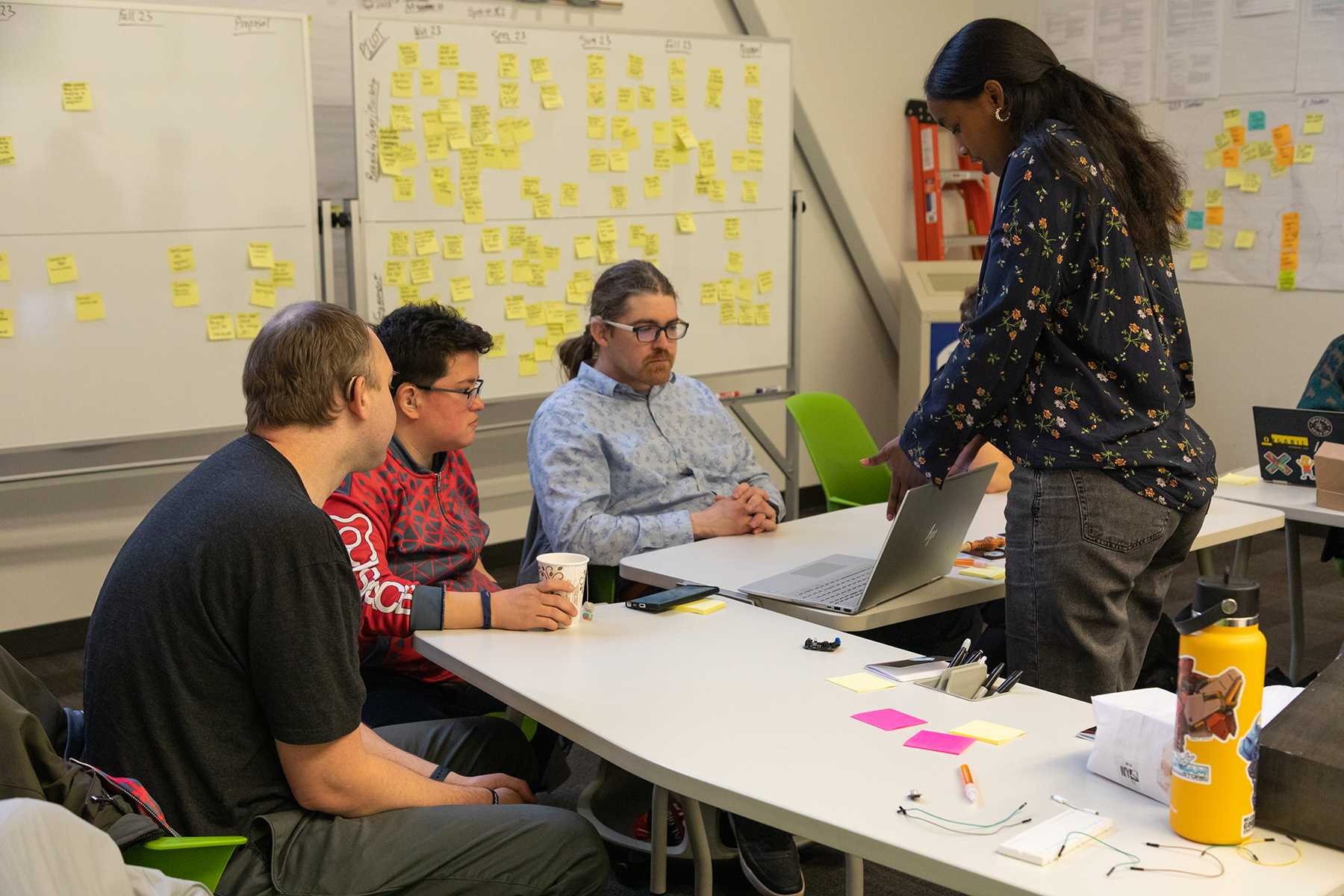
Meeting the need for school counselors
Oregon is experiencing a critical lack of school counselors, especially in rural areas. Lucy Purgason and Molly Moran, College of Education faculty at OSU-Cascades, lead the Promoting and Advancing Training of High Desert School Counselors program, which places 12 to 18 counseling interns at high-need schools in four Central Oregon districts every year.
Presenting vaccine information equitably
Daniela Olivas Shaw, a 2022 OSU graduate, and the College of Pharmacy helped Oregon pharmacies provide information about COVID-19 vaccinations to Latinx patients with equity and empathy. After researching Spanish-language materials by the U.S. Centers for Disease Control and Prevention, the Oregon Health Authority and local health departments, Olivas Shaw found the materials needed clearer language for Latinx patients. She created a Spanish-language toolkit using familiar terms to cover vaccine manufacturers’ information, possible side effects, differences between vaccines and FAQs.
Olivas Shaw also spearheaded two educational videos produced by the college. The first helps providers recognize and respect different customs across Latinx communities. The second video is for patients, covering information on different vaccines, expectations for vaccine appointments, possible side effects and answers to common questions.
Protecting animals in a disaster
A product of wildfire response efforts in 2021, DAM Vets — the Carlson College of Veterinary Medicine Disaster Action Management Team — offers disaster preparedness training and outreach to the public, as well as disaster response training and education to veterinary professionals and students. DAM Vets continue to provide on-the-ground response during wildfire disasters to protect pets and farm animals.
Helping children with disabilities get moving
Children with mobility disabilities get to play and socialize with their peers more easily through the Go Baby Go program in the College of Health. Past research has shown that independent mobility is linked to cognitive, social, motor, language and other developmental benefits in young children. Go Baby Go is a national, community-based research, design and outreach program that provides modified ride-on cars to children up to age 3 who experience limited mobility. About 750 families have participated in OSU’s Go Baby Go program since it launched in 2012.
Adding tasty recipes to food boxes
Emergency food boxes help families in need, but recipients don’t always know what to make with what’s inside. OSU Extension in Wallowa County worked with the Enterprise Food Bank and Wallowa Food Bank to produce Just Scratch It! kits for the food boxes. Easy-to-make recipes from the Extension Food Hero initiative include skillet chili, one-pan spaghetti, stovetop tuna casserole and a hamburger skillet with beans, rice and cheese.
Using wastewater for irrigation
Oregon farmers might be able to irrigate and fertilize their crops with wastewater thanks to research in the College of Engineering. A partnership between farmers, wastewater treatment plants and the U.S. Department of Agriculture, the project could also reduce reliance on chemical fertilizers. Researchers are developing a two-stage, hybrid membrane filtration technology to treat the murky liquid discharge from anaerobic digesters, a type of bioreactor used in water treatment plants and on some larger farms. The technology could be deployed directly at farms that operate their own anaerobic digesters or farms adjacent to municipal treatment plants.
Advancing the semiconductor industry
One in six semiconductor jobs in the U.S. are located in Oregon, and semiconductors account for nearly half of the state’s exports. Through the College of Engineering, Oregon State is leading the Advancing Semiconductor Technologies in the Northwest program. With $1 million in funding, the program focuses on advancing use-inspired solutions for new and existing semiconductor materials and devices, inventing processes for scalable nanofabrication manufacturing and expanding innovation and entrepreneurship. It will also create new training and leverage existing programs to support a diverse workforce.
Supporting family businesses
Family businesses are a major contributor to the Oregon economy and can range from a small, multi-generational farm to a national food brand and a construction conglomerate. The Center for Family Enterprise in the College of Business serves as a critical hub for education and research on issues that matter to family businesses across Oregon and the Pacific Northwest.
Addressing real-world public policy
The Oregon State Policy Analysis Laboratory in the College of Liberal Arts allows students to apply the quantitative and qualitative skills they’ve learned in class to real-world policy issues in education, energy, climate change, disaster response and other fields. OPAL combines research rigor with reciprocal learning to improve policy outcomes for all Oregonians. The results from previous work on food insecurity in Oregon have been used and cited by a variety of sources — including the Oregon Legislature — to develop new policies and actions addressing poverty and food insecurity.
Sharing data on natural resources
The Human and Ecosystem Resiliency and Sustainability Lab at OSU-Cascades shares research data on natural resource conservation, monitoring and restoration with the U.S. Bureau of Land Management, National Park Service, U.S. Department of Fish and Wildlife, U.S. Forest Service, Oregon Department of Fish and Wildlife and Oregon Department of Transportation.
Assessing drought and heat management practices
The results of a statewide needs assessment of Oregon farmers and ranchers found that they are already largely aware of what management practices and tools are available to contend with drought and heat, but more funding and technical assistance are needed. The OSU Extension Service, which conducted nearly 60 interviews for the assessment, submitted the report to the Oregon Legislature in the summer of 2023 and has also shared it with relevant organizations.
Honoring women who made history
Informed by historical research and scholarship, Eliza Young Barstow, senior instructor in the College of Liberal Arts helped the Corvallis School District evaluate candidates for new names at three elementary schools. In 2021, the schools were renamed to honor Letitia Carson, a former enslaved woman who arrived in 1845 when Oregon’s Black exclusionary laws were still active; Bessie Coleman, the first African American and Indigenous person to earn a pilot’s license; and Kathryn Jones Harrison, who helped regain federal recognition for the Confederated Tribes of the Grand Ronde Community of Oregon.
Expanding outreach in earth sciences
Through the Outreach Community of Practice in the College of Earth, Ocean, and Atmospheric Sciences, faculty and graduate students, along with partnering OSU organizations, share their work outside the traditional classroom and laboratory environments. Members gather to discuss current projects and envision future outreach and engagement programs that are thoughtful and inclusive.
Protecting whales, supporting crabbers
A collaborative working group of fishermen, government agencies and conservationists, organized and facilitated by Oregon Sea Grant, led to the implementation of research-based strategies to reduce the number of whales entangled in crabbing gear off the Oregon Coast. Sea Grant faculty researchers also identified hot spot areas for potential whale and crab gear conflict on the coast, which will support precision management and reduce economic impacts to crabbers.
Adding content to Wikipedia
Laurie Bridges, instruction and outreach librarian for OSU Libraries, spearheaded the first #EveryBookItsReader Wikimedia campaign in April. Bridges brought together collaborators from Brazil, Mexico, Spain, Canada and Botswana to add quality content about books to Wikipedia and Wikidata. Together, they created more than 900 Wikipedia articles, edited 4,200 articles and added 1.9 million words across Wikipedia in at least nine languages.
Creating immersive, virtual experiences
DIVE4Ag — Distant, Immersive, Virtual Education for Agriculture Literacy — is an initiative led by Precollege Programs and OSU Extension Service 4-H Youth Development to deliver immersive experiences to middle and high school students in the Pacific Northwest. Working with community and industry partners, DIVE4Ag developed an innovative Agriculture Distance Education Toolkit, including five free virtual and augmented reality apps that youth helped co-create while working with agriculture experts, education professionals, communicators and technology partners:
- Agroecology on urban farms.
- Dairy farm and cheese lab.
- Oyster farm.
- Horse farm and stable.
The free apps can be downloaded via Xplore applications by Timelooper in both English and Spanish. To date, more than 10,000 people have participated in DIVE4Ag activities, either by downloading and/or interacting with the apps and lessons or by attending professional development workshops and information sessions. More widespread distribution is planned for 2024.
DIVE4Ag is supported by the USDA National Institute of Food and Agriculture.
Opening STEM pathways in rural communities
SMILE — Science and Math Investigative Learning Experiences — is a statewide program providing after-school clubs and other programs in the STEM fields — science, technology, engineering and math. SMILE supports more than 7,000 underrepresented, lower-income and first-generation elementary, middle and high school students in rural school districts. For 33 years, SMILE has leveraged community partnerships, resources, assets and networks to help students gain STEM skills year-round and go on
to college.
More than 70 SMILE teachers belong to a community of practice with professional development and resources to facilitate clubs and to embed an evidence-based STEM curriculum co-created with OSU researchers into their classrooms.
SMILE is supported by multiple federal, state and foundation funders.
Cultivating invention and engagement
The iINVENT program brings introductory invention education curricula to K-12 audiences both in and out of school. The program’s commitment to innovation, community engagement and problem-solving reaches learners in four ways:
- iINVENT in the classroom provides a virtual curriculum to upper elementary students, along with teacher professional development for classroom integration.
- iINVENT Mobile Camps in the summer help middle schoolers gain innovation skills through community-focused invention case studies.
- iINVENT Youth as Inventors supports high school students who work with partners to solve a problem in their communities and develop prototype solutions.
- iINVENT Integrations are short invention activities incorporated into Precollege Programs such as Campus Field Trips and Beaver Hangouts. They provide hands-on activities to K-12 students, teachers and families.
iINVENT is supported by the Lemelson Foundation and through leveraging funds via Precollege Programs partnerships.
